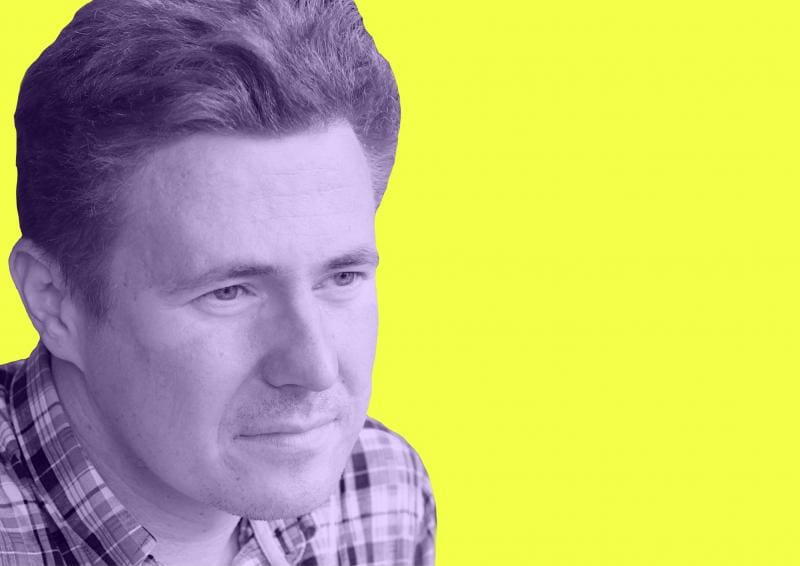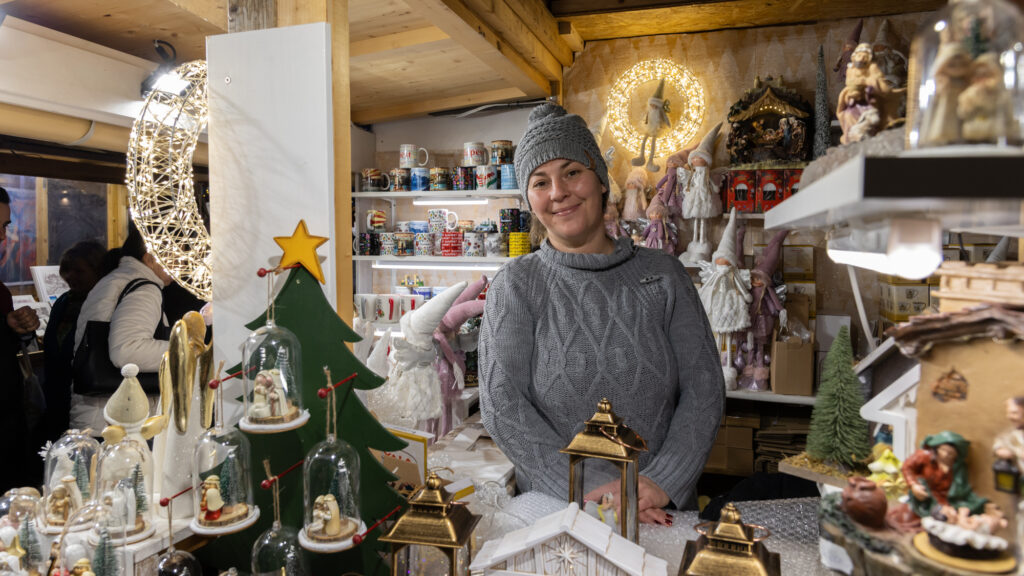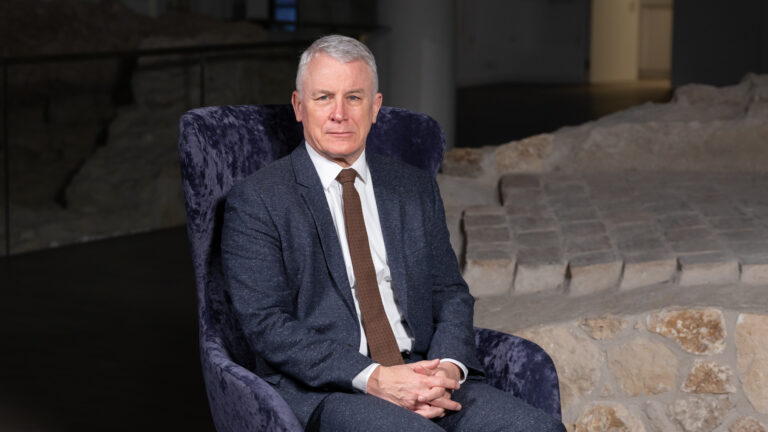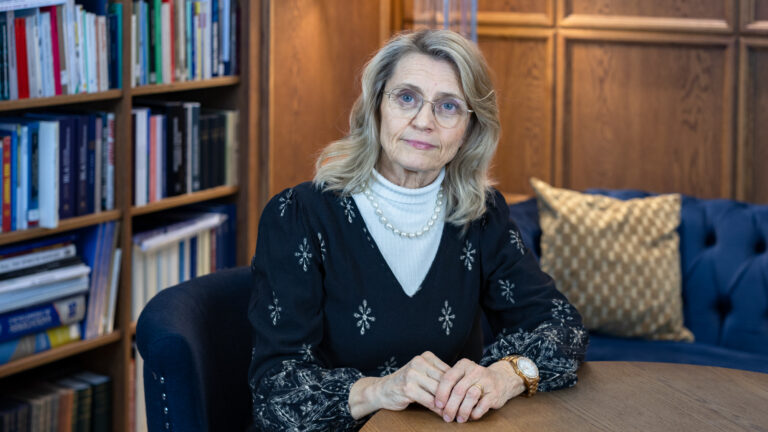Juraj Šúst is a Slovak catholic author, publicist, television dramaturg and pro-life activist. He is the Chairman of the Ladislav Hanus Fellowship, a cultural-educational organization and institute providing university level educational programmes in Christian-conservative thought and organizing festivals and events, such as Hanus days, academic-cultural festival about the encounter of Christian and secular culture or the Conservative Summit in Bratislava, the meeting of conservative elite from Slovakia and abroad. He is the Editor-in- Chief of Verbum, a Slovak intellectual journal about Christian culture.
First, I would love to know a bit about your background. How did you receive this calling of yours? When did you realize that you want to dedicate your life to Christian cultural organizations and religious activism?
I would say it is part of my rebellious attitude. I am the first of four children and I was very argumentative towards my parents. I hope that many years later I am using this attitude to,what they tried to teach me, defend my Christian faith.
From this Christian intellectual standpoint, can Catholicism and politics work together in today’s society? What is the mission of Christian politicians today?
The first task is to see through the smoke of secularism… Secularism in politics is just a way to neutralize Christianity in public sphere and promote other moral and religious creeds instead of Christianity. Moral neutrality in politics is an illusion. The second task is to know the history and not to confuse the distinction between throne and altar with the division between state and church, as if the Church had nothing to say about how we should live in society, including politics. The opposite is true.
The state, if it wants to be just, needs the help of Christianity in order to stay on a good, moral and spiritual track
Christianity preserves the state from excesses by promoting particular moral goods. As we see today, without the help of religion, the state does excesses all the time, be it the protection of health, natural environment and so on. In the current COVID crisis for example, absolute priority is given to good health, whereas other goods and values like religion, social life, education of children are diminished as if they were not important for human flourishing. Without Christian religion, moral goods and values are losing their reasonable objective structure and their order. They are treated strictly subjectively and utilized by political power according to wishes of either the majority or important political stake-holders. So, a Christian politician should not be afraid to re-frame secular liberal democracy for Christian democracy! He should not be afraid to do this. If he cannot change the situation right now, he can still use this rhetoric to influence political culture. And surely, Christian politicians should do all they can to change, even partly, those civil laws that violate natural law, like abortion, same sex marriage, and no-fault divorce.
One of your main focus is pro-life activism, which has become an increasingly difficult position to defend nowadays. So, how do you see the state of this battle in Europe? And what about this future? Can today’s paradigm towards abortion be changed in the future?
I do not know when, but I am sure it must. Well, not so long ago, we had Nazism being the dominant philosophy in public life in the most developed country in Europe. So yes, the pro-abortion paradigm can be changed as well. Today, sadly, many people tend to think that we are much better now than Germans were in the first part of the twentieth-century. In one respect it is true, we are better. Racism is not our official public policy and only a very small number of people have racist attitudes. In other respect; however, the situation is even worse than it was before. This is particularly true for the status of an unborn human life. As a society, we have no problem tolerating our most little ones being killed in hospitals on demand and their remains treated as biological trash. It is so gravely inhuman! So, even if, currently, we do not have the political power to change it because the majority agree with abortion laws, we need to vigorously and continuously say publicly that the ‘Emperor is naked!’ From the moment of conception, even science says, the unborn in the mother’s womb is a proper human being in a particular state of human development and needs to have his or her human rights protected.
Many pro-life Christians often think that their views on abortion should not be forced upon others, as this is merely a personal ideological choice, and therefore do not support pro-life initiatives in politics. Where do you stand in this dilemma of freedom of choice and sanctity of life?
First of all, this kind of thinking, spreading like a virus among many young Christians today, is not morally neutral
It implies and enforces a distinctively liberal concept of morality. According to this so-called ‘liberal concept’, it is up to each individual to decide what is right or wrong as long as this decision does not interfere with decisions and interests of others. However, there are at least two problems with this kind of thinking. First, moral decisions are right or wrong objectively, individuals can decide between right or wrong, but not what is right or wrong. Second, the unborn are arbitrarily not included among ‘others’. So, it is no surprise at all that this kind of thinking—I am against abortions personally, but I do not want to force women—leads to acceptance of abortion on the level of society. Christians should be aware of this. They should also be aware that individualism as a moral norm changes politics and culture as well. This is evident from recent history. What first started as a right-to-think-and-live-differently from what moral norms of the society defined, gradually has led to changes of these same norms on societal level. Abortions, divorces, same-sex marriages are not merely tolerated, they are now morally accepted by the majority of the Europeans. And of course, in the end, these cultural-societal changes also have an impact on individuals through societal pressure and political laws.What started as a call for toleration and freedom, finishes as oppression. Christians who support liberal morality because of a false notion of generosity towards people with different opinion, certainly undermine, unfortunately without knowing it, their own liberty to live according to their religion.
You have said before that leadership of the Catholic Church is in a crisis. How would you define this crisis? And do you think that there a way out of it?
I would say that the context of the crisis is the question of how to cope with modernity. Of course, for Christianity it is not natural not to be cultural. Christianity wants to inspire culture. It is part of our evangelizing ideal, that is what we are called to do by the Lord. And this presence of Christianity in the current culture is what has been discussed in the Church ever since the Second Vatican Council. How to be culturally relevant in a society that has been changed—irreversibly as some would say—by modernity? How to find new cultural forms to be more acceptable and more understandable for modern men? After more than 50 years, we see that this searching for new forms has become, in itself, a kind of idolatry and has not brought the expected spiritual fruits. Rather, it has caused division inside the Church. Many Catholics, including some Church leaders, accuse the Church of a rigid historicism and an inability to stay close to people, meaning its reluctance to modernize according to the demands of the zeitgeist. Rather than preach about sexual morality, virtuous life, sacrifice as an attitude of love and about our call to follow Christ unconditionally, it is safer and not offending, although rarely profitable, to preach about love in the sense of not being divisive, about the protection of environment or helping the poor. The current crisis lies precisely in the fact that the certainty of faith and the unity of the Church are in danger.
Many people think that this process started by the Second Vatican Council has culminated in the policies of Pope Francis lately. He said many times that Christians should welcome non-Christian—largely Muslim—mass-immigration to Europe, or accept LGBT movements and people for who they are. Lot of Christians, especially in Central Europe, feel alienated from these messages as they feel contradictory with traditional Church teachings.
It seems that some use the Second Vatican Council to make the case for ‘conservative’ arguments and others use it to justify ‘liberal reforms’. Well, we see that Pope Francis is using it to justify ‘liberal’ positions, whereas Benedict XVI used it to justify more ‘conservative’ standpoints. Therefore, we need to clarify the content of the Second Vatican Council first. Certainly, valid interpretations cannot contradict the traditional teaching of the Church as it had been defined by previous magisterium.
Do you think that Pope Francis, with this very liberal approach, has transformed the Church permanently?
I hope not. I do not think that there can be a permanent transformation. Because if our Church stops to be distinguishable from the rest of the society, it loses the sense of its existence. But because I believe that the Catholic Church is the true church, I am sure that the Church will be with us to the end of times.
One last question. How do you see the role of Central Europe in all of this, especially of those belonging to the Visegrad Group?
I think that we should fight for the truth together. Especially Slovaks and Hungarians, who were part of one Hungarian empire which lasted almost 1000 years. We should not be too concerned with clashes of the nineteenth and twentieth centuries. I believe we have to look over the differences and see all this common history, which today is more relevant than ever before. I am not familiar with all of the domestic policies of Viktor Orbán, for example, but what can be seen from abroad is that his vision of politics is inspired by Christianity. So, I am very eager to cooperate and to ally with Hungarian, Polish, and Czech conservatives. Yes, we should form strong alliances and fight for all of Europe, not just for Central Europe. We should try to save the West from completing its current suicide attempt.







